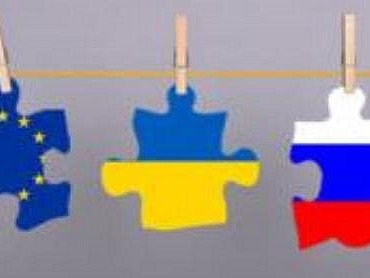By the director of the Institute of World Policy Alyona Getmanchuk for “UKRAINSKA PRAVDA”The European game in Ukraine continues: opposition and its allies in expert circles relate how Europe has successfully buried Ukraine’s democracy, and now Ukraine has nothing to hope to anymore with regards to the EU. The government and its expert allies seek for positive news even in the fact that Yanukovych was invited to Brussels by means of European Parliament’s resolution (thanks god not through the European Court for Human Rights or, for instance, trough the Hague Tribunal)
The truth is, as always, somewhere in between. It is good that in Ukraine reaction to a European Parliament opinion is much bigger than in some EU member states. Otherwise, Ukrainian diplomats would not have tried to man the breach by seeking to smooth clauses in the document of the EU legislative body, knowing that even the most smoothed edges in the EU position are not an indulgence for the Ukrainian authorities. It is bad that EP recommendations on establishing a fair judiciary are ignored in Ukraine in the same way as the recommendations of the same body on providing Ukraine with even a very vague European perspective are ignored in the Merkel’s chancellery.
What Kyiv considers to be a complex diplomatic game is perceived in Brussels as a cheap political bargain. Polish Foreign Minister Radoslaw Sikorski is right when saying that one can overestimate its own powers while bargaining. Especially when the game is supervised from the Russian side by Mr.Putin. Indeed, on the matters of Ukraine’s geopolitical oscillations Russia so far has lost only once – during the Orange Revolution. For Mr.Yanukovych’s attention: this is the very case when together with Russia he personally became a loser. In all other cases, be it blocking of Ukraine’s integration to the NATO, or Russian Black Sea Fleet stay in Sevastopol, or other matters of principle, Russia has always won. Russia is winning today as well. Have you noticed in which moment the dynamics in the triangle Ukraine-Russia-EU has changed in Russia’s favour? It was the moment when Russia changed its tactics and started behaving like the EU (that is, instead of humiliating Yanukovuch, Russia started to talk to him in a friendly manner, invite him to friendly gatherings without showing him his place), while the EU instead started to behave in a Russian way (public reproaches to the Ukrainian president, hysterical statements of some EU representatives in the presence of Yanukovych and statements of a number of other presidents and prime ministers, last-minute cancellation of a visit etc – all tricks Moscow was so skilful of using in its dialogue with Ukraine).
The legend says that countries have their own curses. Russian curse is cheap energy supplies: cheap energy would not allow Russia to develop “in a right way” by drawing away attention, energy and resources for the sake of hardly conceivable projects and ambitious goals. I don’t know what curse had been called down upon Ukraine, but it seems that for Ukrainian presidents (at least, for two of them) this curse is Yulia. Any normal person, in Ukraine or elsewhere, would ever understand how hatred and hostility towards one woman could dampen all declared goals, electoral promises and even lads’ principles shared at least by the third president. Both Yushchenko during his presidency and Yanukovych today proved one thing: once surname “Tymoshenko” is switched on, all the rest, including personal political future, promised reforms, European integration, perception in the East and in the West, personal international contacts, becomes irrelevant. Bush’s calls to urge Yushchenko to stop war with Yulia as well as Merkel’s private talks to call upon Yanukovych to leave Yulia in peace sharply depreciated at once. The more one continues to say “free Yulia”, the higher probability is that she will stay in prison.
In fact, Yulia is only an actor in a struggle of two processes: “Ukrainianization” of the European Union and “Europeanization” of Ukraine. The first option is when Ukraine convinces the EU to turn a blind eye to the values and look at relations with Ukraine exclusively through the prism of interests: as initialing and further signature of the Association agreement is also in the EU’s interests. The second option is when the EU forces Ukrainians (to be correct, the Ukrainian authorities) to at least formally respect the European values, either by adapting a new criminal law or by making whatever possible and impossible to let the opposition fully participate in the elections. But the exclusiveness (and maybe the irony) of the current conflict is that the temporary “Ukrainianization” of the EU – that is the conclusion of the Agreement despite Ukraine’s failure to respect the desired democratic values – might in future reinforce “Europeanization” of Ukraine. While temporary victory of “Europeanization” – where values are above all and thus it means no agreement at all – may lead to a serious set back in this “Europeanization”.
Alyona Getmanchuk – director of Institute of World Policy (Kiev, Ukraine)




Comments theme
Comments themeComments themeComments themeComments themeComments themeComments themeComments themeComments themeComments themeComments themeComments themeComments themeComments themeComments themeComments themeComments themeComments themeComments themeComments themeComments.